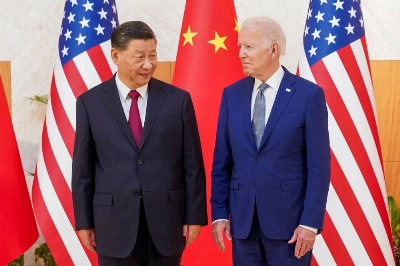With artificial intelligence being used in a growing number of defense systems, Japan and 44 other countries have endorsed a U.S.-led initiative aimed at setting guardrails around the military use of this cutting-edge technology.
Amid concerns that the unregulated use of AI could result in unintended consequences, the Foreign Ministry in Tokyo said Tuesday that it shares Washington’s objective of “reducing the potential risks and uncertainties posed by the introduction of AI into the military field.”
Tokyo, which has been following the U.S. initiative since its launch in February, also said it welcomes efforts to strengthen the compliance of military AI applications with international humanitarian law.





















With your current subscription plan you can comment on stories. However, before writing your first comment, please create a display name in the Profile section of your subscriber account page.